VVF: More cases linked to surgical errors
-
Iatrogenic fistulas now on increase in Nigeria
-
Caused by unsafe Caesarian Section performed by unskilled personnel
Until recently, the term “iatrogenic fistula” is not a common term, used even in medical circle in Nigeria. It is believed that vesico vagina fistula (VVF) an abnormal connection between the bladder and the vagina, which allows continuous involuntary discharge of urine, remains the only cause of such urine leakage by women – a condition traceable to difficult child delivery, especially among underage women. However, investigation by Franka Osakwe, reveals that cases of iatrogenic fistula are now seen more frequently in the country’s hospitals as more women develop obstetric fistula due to unsafe Ceaserian Section and mismanaged labour, mostly handled by unskilled health workers. Some victims who were recently repaired shared their experiences.
Case 1: Fatimah Ibrahim
Fatimah Ibrahim, a 41 year-old, Fulani Normadic trader, had intra-cervical fistula, caused by unskilled medical personnel after a C-Section delivery 14 years ago. She was repaired unsuccessfully four times, until the fifth repair at Sobi Specialist Hospital, Kwara, carried out by expert surgeons.
Now repaired and dry, she recounted; “when I was in labour for my third baby 14 years ago, I went to a private hospital at Kakuri, Kaduna State. It was there that I delivered my first baby through Ceaserian Section (CS). I always delivered at hospital, unlike my friends who deliver at home. The hospital is owned and managed by the Catholic church.
“I made sure I attended all the antenatal clinic and when it was time for delivery, I went to the hospital. The doctor said I will have to deliver through CS.”
It was the fourth time Fatimah will be going under the knife, though well intended for her well-being. This last operation however turned out very badly.
“The next day after the CS, I discovered that I was leaking urine without control. After explaining to the nurse what was happening, she told me that I should not worry that it will be repaired” she added.
Three months later, another surgery was carried out by the doctors at the hospital to stop the urine leakage. But her condition only grew worse and she had to resort to self – help.
“For many years I was managing the urine, using pieces of cloth to pad myself. My life was no longer the way it was before. I couldn’t stay in a gathering for long time because I have to go and change my pad.
I became withdrawn and depressed, but my search for a cure continued.
“Few years after, I heard about a repair going on at Kano and I went for the repair twice at the hospital but again, the leakage continued.
“Undaunted, in 2013, I went for another repair at Kwara, but again it was unsuccessful”.
Smile however returned to Fatimah’s face recently during a pool effort repair at Sobi Specialist Hospital, Kwara. Leading a team of highly skilled fistula surgeons, Dr Sa’ad Idris, a master fistula surgeon’s trainer and a gynaecologist of many year’s experience, successfully closed the hole causing her to stop leaking urine.
According to him, the previous surgeries may have had a positive outlook, but to the woman it was unsuccessful because she was still leaking.
“Probably, the cause of the fistula may have been incompletely diagnosed. Maybe she had multiple issues that wasn’t detected completely – a multiple fistula, or the person who did the repair didn’t know how to do it, or she could have been coughing after the surgery and the stitch got lose” he said.
Surgical mistakes happen
During the sugery, Dr. Idris, admitted that she had the kind of fistula that is traceable to surgery mistake.
“The woman had intra-cervical fistula- a kind of fistula caused by a medical personnel whether qualified or non-qualified, usually following a CS”, he explained.
There was an erroneous cut on the bladder very close to where they cut the uterus to remove the baby. The fault may be because of too much adhesion, or maybe the medical personnel is not too experienced. She has had four previous repairs, we are hoping that this will be the last one’’, he told the reporter.
Why too many failed fistula repairs
The chief surgeon tried to diagnose the reason for Fatimah’s failed repairs.
“This woman had all her deliveries, three using CS. On the third one, she developed fistula after the CS. We learnt that so many things went wrong during the previous repairs. We found out that the previous doctors had to go through the abdomen to remove the uterus – the tubes that brings urine down to the bladder. Probably they tied or cut the tubes and had to remove and re-fix them. Although this was successfully done, to the woman it was unsuccessful because she was still leaking. Probably, the cause of the fistula may be incomplete diagnosis. Maybe she had multiple issues that wasn’t detected completely – a multiple fistulas, or the person who did the repair didn’t know how to do it, or she could have been coughing after the surgery and the stitch got lose”, he said.
Solution to failed repairs:
“Doctors should know their limitation. The best doctor is the doctor that knows his limitation.
“We also need to keep seeking for more knowledge by continuous training.
Also we need more trained fistula surgeons and experts because the field is very difficult. Actually the number of doctors we have in this country are small compared to the population, and the few on ground are also leaving the country”, Dr Idris added.
Case 2: Taiwo Saheed
Taiwo Saheed, 37 year-old trader, was in a private hospital at Orile-Igamu, Lagos in 2015 when she started labour. Unable to successfully push the baby, she was referred immediately to the General Hospital, Badagry, Lagos.
“At the General hospital Badagry, I was still told to start pushing. I pushed the baby all through the first day. While I pushed, the nurses shouted at me. It was as if I was being punished for something. I continued pushing all through the second day without success.
“The pain was too much and I was getting very tired. At the third day, I was able to deliver the head but the shoulder couldn’t come out. Through a vacuum delivery, the nurses finally assisted me to remove the baby but it was born dead. Two days later, I discovered that I was leaking urine.
“I was referred to the Lagos State University Teaching Hospital Ikeja (LASUTH) for the repair of the VVF. After the repair, I discovered that my vagina was stitched up so I found it difficult having sex with my husband. Each time he tried, sex was very painful, uncomfortable and difficult. The urine leakage also continued.”
After many failed attempt by some doctors to repair the fistula, succour finally came to Taiwo in December 2017, during a week long repair surgery facilitated by USAID Fistula Care plus project in collaboration with Kwara State government.
Again, Dr. Idris comments:
“Some of the women have had their vagina erroneously closed during a fistula surgery. But this is not right.
“Once you close the vaginal hole, the woman will not see her menstruation again, conceive or enjoy sex.
“So it’s important to consider the sexuality of the woman when doing the surgery so as to avoid closing up the wrong place and reducing the cavity of the vagina. You need to consider the sexual function of the woman”, he said
Obstetricians and Gynaecologists in Nigeria have recently admitted that many cases of obstetric fistulas (holes developed between the vagina and rectum or bladder), are as a result of surgical errors caused by unskilled surgeons and healthcare professionals during medical procedures, most often, during a caesarean section (CS).
Now, they have conceded to this fact after several hospital based studies proved that there is now an increase in this type of fistula cases, known as iatrogenic fistulas, in Nigeria and other developing countries.
Some of the studies were explained in a presentation by Prof. Oladosu Ojenbgede, during a ‘hands-on training on VVF repair workshop’ at the 51st annual scientific conference of The Society of Gynaecology and Obstetrician of Nigeria (SOGON) held at Usmanu Danfodiyo University Teaching Hospital (UDUTH), with support from USAID Fistula Care Plus project.
Dr. Olatunji Lawal, who gave the presentation on behalf of Prof. Ojengbede, said a systematic review of articles on fistula done in Nigeria by Ijaiya and others in 2010, in Maiduguri, showed that CS is now causing many rising cases of obstetric fistula.
In the study; ‘About 10 per cent of obstetric fistula cases were caused by CS, about 9 per cent were caused by surgical trauma, about 1 per cent by traumatic vaginal laceration from Port Harcourt clinic.
Dr. Lawal, revealed that at University College Hospital Ibadan (UCH), a 5-year review of obstetric fistula cases was also conducted.
“In the studies, about 150 fistula cases were studied, out of these, about 14% were iatrogenic and they had ureteric injury while about 25% had uretero-cervical-vaginal fistula likely iatrogenic.
“The largest review of iatrogenic fistula ever done was by Raasen and others in 2014. They reviewed 5959 cases across about 11 countries and tried to look at how many fistulas occurred from iotrogenic causes. From that review, they discovered about 805 iatrogenic fistulas.
“They also found that 80 per cent of these iatrogenic fistulas occurred after procedures to address obstetric complications- frequently C-Section, followed by hysterectomy and repair of ruptured uterus. These procedures were performed by all cadres of health staff”, he stated.
“In 2016, Fistula Care Plus Project, released a statement document to address this issue called ‘rising trend in iatrogenic fistula. They reviewed all the countries they were in partnership with- about 18 countries, were they looked at the incidents of iatrogenic fistulas and the commonest cause.
“From the paper, about 42% of the iatrogenic fistulas came from CS alone. From the graph presented, Nigeria had a 14% rise in iatrogenic fistula.”
Concurring with this studies, Chief Consultant Fistula Surgeon, and former Commissioner for Health Zamfara State, Dr Saad idris, said; “Iatrogenic fistula is fistula that we health practitioners cause during medical procedures. if we can do a safe caesarean section, fistula can be wiped out.
“Unfortunately, we have some studies showing 26 per cent cases of iatrogenic fistulas occurring in many hospitals. I have gone to some centres in the southern part of the country and seen where some 30 patients were operated and 20 developed iatrogenic fistula. It is becoming commoner too in the northern part of the country”.
According to him, training and continuous training remains key to eliminating iatrogenic fistula.
“We have to make sure that SOGON try and train the medical students and house officers. This is because most of the CS done at the general hospitals are not done by specialists. So we should tailor the training not only to the specialists but also to the younger medical officers”, he said.
In her presentation, Dr. Sadiya Nasir, from the National Obstetric Fistula Centre, Babbar Ruga, Kastina, revealed that in some centres, there has being a record of 13 per cent of iatrogenic fistulas and this is a cause for concern.
She said; “in our centre, we did a two year review of the fistula cases and we got about 20 per cent of the cases being iatrogenic. But that could be because our centre is a referral centre”.
According to the lead facilitator and mentor, Prof. Oladosu Ojengbede, there is now more cases of iatrogenic fistulas.
“Ordinarily, fistulas are supposed to come as a result of complications of difficult labour, but when women have fistula as a result of surgical interventions for some gynaecological condition such as fibroid or prolapse, that is iatrogenic. This shouldn’t be.
“It is true that every surgery has some element of risk attached to it, but the alarming rate we are seeing this iatrogenic fistula is of great concern to us.
“According to the Lancet study, C-Section is a necessary intervention for prolonged obstructed labour and prevention of fistula.
But the CS should be done by someone who is competent and should be safely done,” Prof. Ojengbede said.
He further explained that; “what we are seeing now is either the person doing it is not proficient enough and is not able to safely do it hence the person ends up establishing a hole between the reproductive system and the bladder, leading to fistula. This shows the poor quality of care received by some women and is a step back on the level of care given by such doctors.
“That is why we are making it a wake up call to all professional bodies, that people should be made aware that this is a problem that needs to be addressed. This is why this has come up at SOGON – a professional body for gynaecologists, so that they can caution their members on the quality of training they provide for their members, be it resident doctors, medical students and others”.
During the training, doctors were told that the primary approach to prevent iatrogenic fistula is prevention.
“We don’t want it to happen at all so the careful study of the anatomies might help the surgeon in preventing this kind of complications. The reproductive and urinary tract are closely related anatomically so this close relationship expose the urinary tract to injury during pelvic surgeries. The knowledge of these two anatomy parts play an important part in preventing injury during obstetrical and gynaecological surgeries, Dr. Lawal noted.

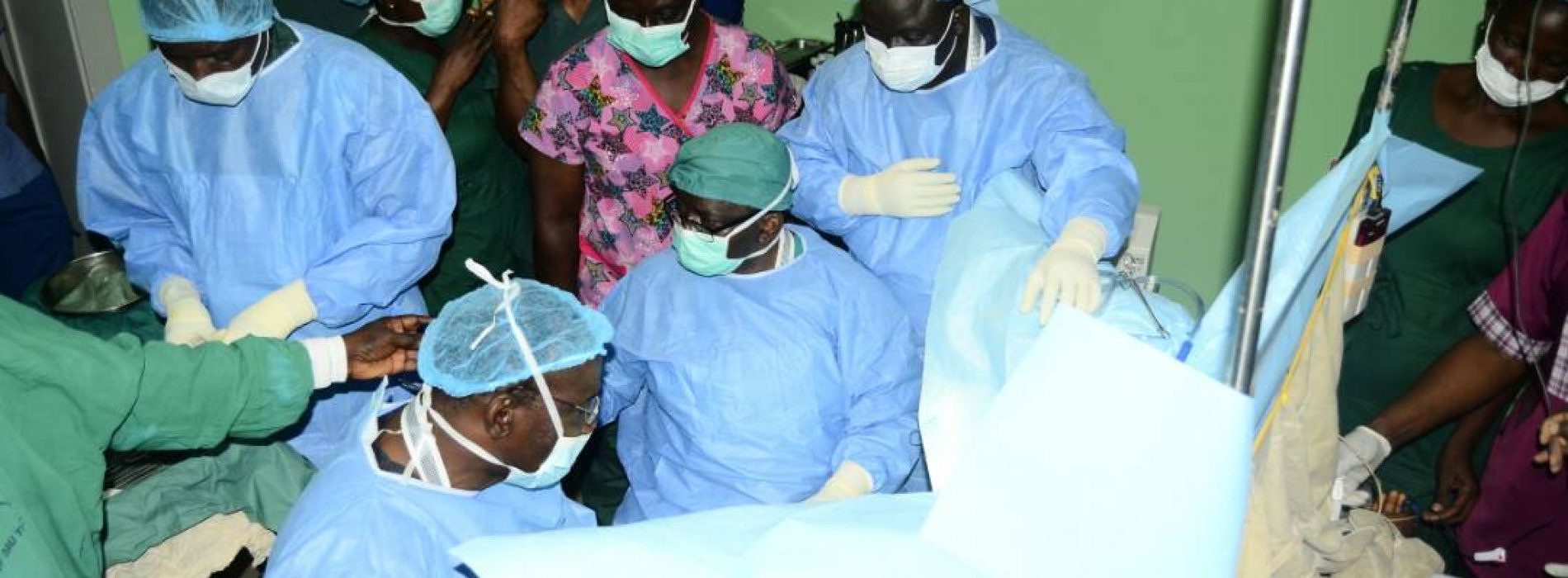
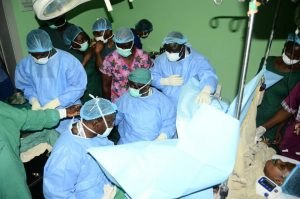
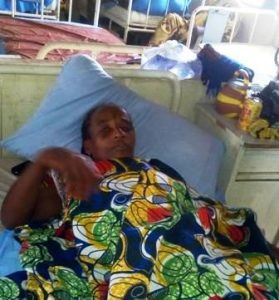
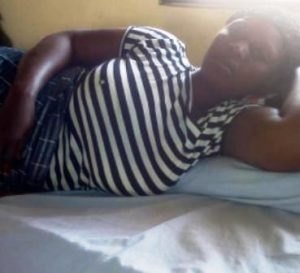


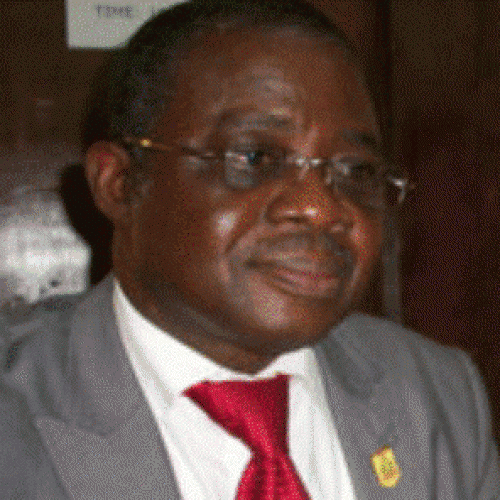





















0 Comments
No Comments Yet!
You can be first to comment this post!